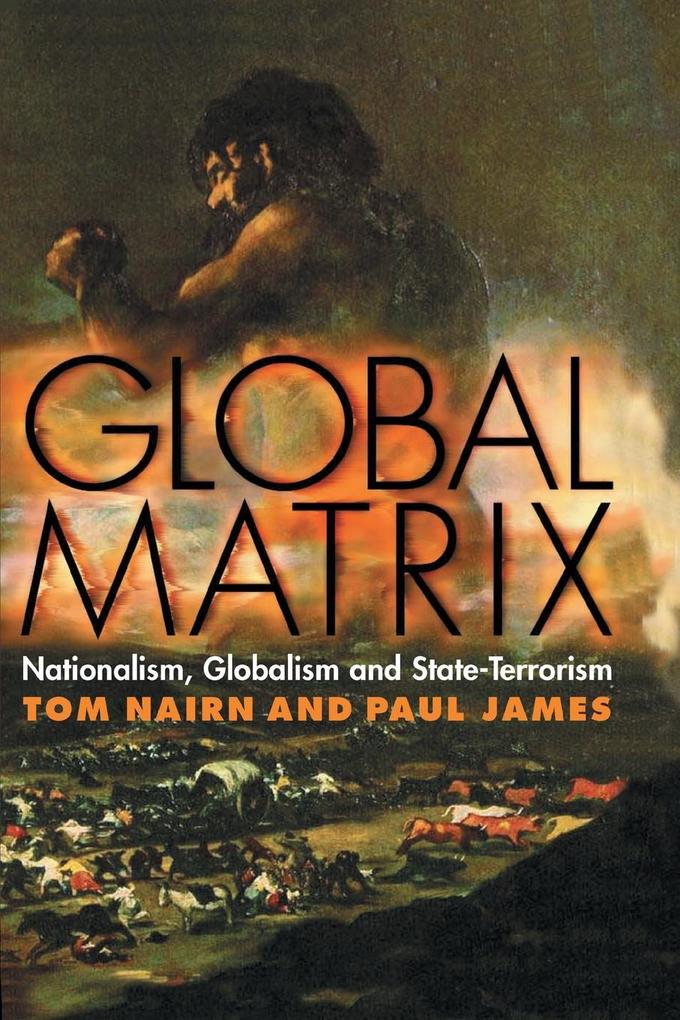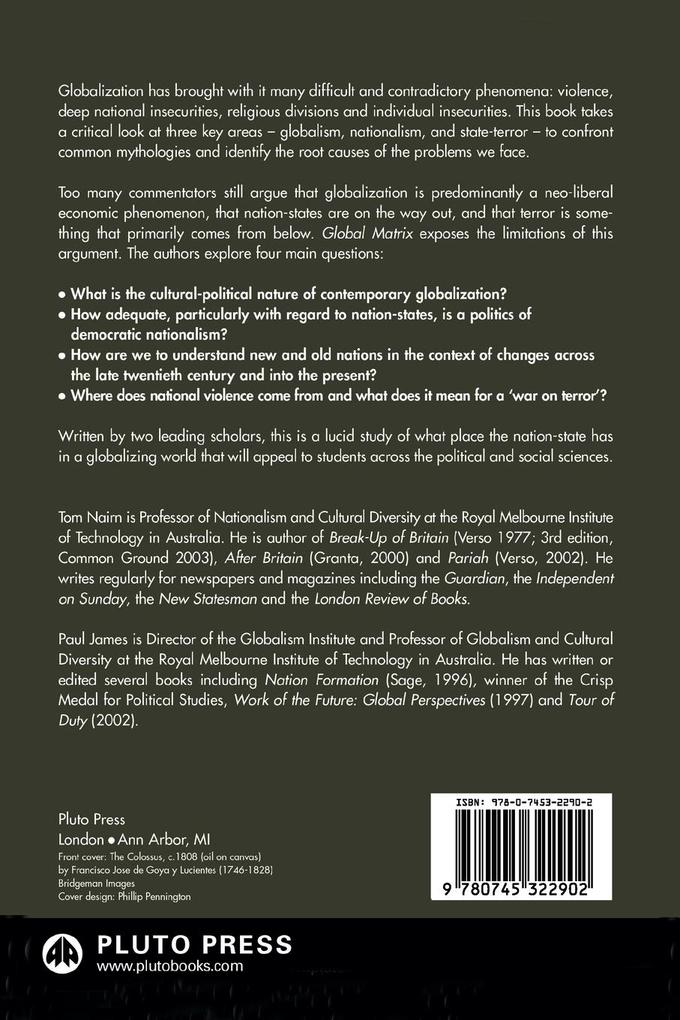
Zustellung: Fr, 16.05. - Di, 20.05.
Versand in 6 Tagen
VersandkostenfreiBestellen & in Filiale abholen:
Globalization has brought with it many difficult and contradictory phenomena: violence, deep national insecurities, religious divisions and individual insecurities. This book takes a critical look at three key areas - globalism, nationalism, and state-terror - to confront common mythologies and identify the root causes of the problems we face. Too many commentators still argue that globalization is predominantly a neo-liberal economic phenomenon; that nation-states are on the way out, and that terror is something that primarily comes from below. Global Matrix exposes the limitations of this argument. Written by two leading scholars, this is a lucid study of what place the nation-state has in a globalizing world that will appeal to students across the political and social sciences.
Inhaltsverzeichnis
Preface; 1. Introduction: Mapping Nationalism and Globalism; Part I. Rethinking Globalism and Globalization; 2. Global Enchantment: A Matrix of Ideologies; 3. Global Trajectories: America and the Unchosen; 4. Global Tensions: A Clash of Social Formations; Part II. Debating Civic and Post-Nationalism; 5. Fetishized Nationalism? (Joan Cocks); 6. Ambiguous Nationalism: A Reply to Joan Cocks; 7. Dark Nationalism or Transparent Postnationalism? Part III. Reflecting on Old and New Nations; 8. Ukania: The Rise of the 'Annual Report' Society; 9. Australia: Anti-Politics for a Passive Federation; 10. Late Britain: Disorientations from Down Under; 11. North America: The Misfortunes and 'Death' of Ethnicity; 12. Central Asia: Continuities and Discontinuities; Part IV. Confronting Terror and Violence; 13. Democracy and the Shadow of Genocide; 14. Nationalism and the Crucible of Modern Totalitarianism; 15. Control and the Projection of a Totalizing War-Machine; 16. Terrorism and the Opening of Black Pluto's Door; 17. Meta-War and the Insecurity of the United States; 18. Post-2001 and the Third Coming of Nationalism; References; Index
Produktdetails
Erscheinungsdatum
20. März 2005
Sprache
englisch
Seitenanzahl
320
Autor/Autorin
Tom Nairn, Paul James
Verlag/Hersteller
Produktart
kartoniert
Gewicht
547 g
Größe (L/B/H)
234/156/19 mm
ISBN
9780745322902
Entdecken Sie mehr
Bewertungen
0 Bewertungen
Es wurden noch keine Bewertungen abgegeben. Schreiben Sie die erste Bewertung zu "Global Matrix" und helfen Sie damit anderen bei der Kaufentscheidung.











